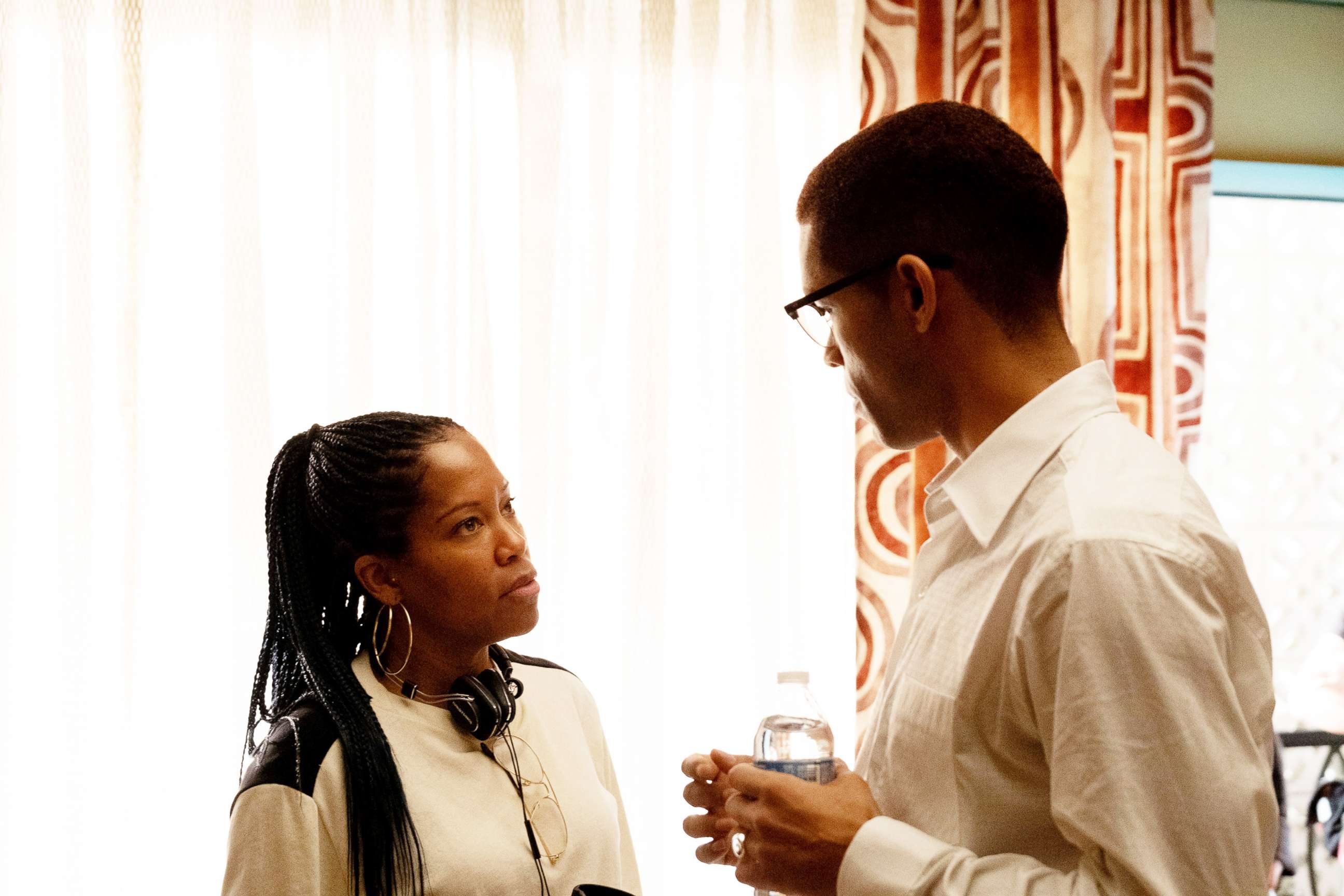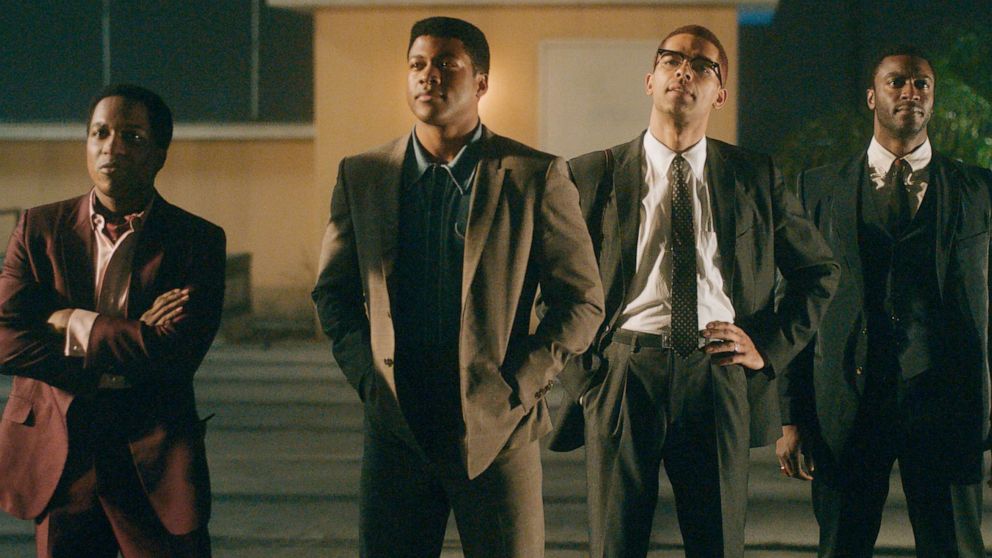'One Night in Miami' review: Regina King makes explosive feature directing debut

There's enough blazing talent in the civil rights drama "One Night in Miami" to light up any screen you watch it on.
Start with Oscar- and Emmy-winning actress Regina King, who makes an explosive feature directing debut. Streaming on Amazon Prime, this cinematic powder keg takes place on one historic night in 1964, when political firebrand Malcolm X joined boxing champ Cassius Clay, NFL star Jim Brown and soul legend Sam Cooke in a Miami hotel room.
To discuss what? We'll never know exactly. The meeting actually happened, but no record was made of it. That left writer Kemp Powers ("Soul") to imagine what these African American icons had to say at the height of the crusade for Black rights. The professional and personal sparks among the men informed his 2013 play and now this film, which speaks forcefully to its time -- and to ours, nearly 60 years later, when the Black Lives Matter fight tragically rages on.

To capture the intimacy necessary to help the play breathe on screen, King needed four actors who could capture the humor, heart and passionate fire to bring us close to these African American giants. She found the very best in Kingsley Ben-Adir as Malcolm X, Eli Goree as Cassius Clay, Leslie Odom Jr. as Sam Cooke and Aldis Hodge as Jim Brown, now 84 and the only living member of the original quartet. All four actors deliver dynamite portrayals that show the often-contradictory approaches each man takes to the challenges of being Black in America.
Ben-Adir, the British stage actor who emerges from the long shadow cast by Denzel Washington in 1992's "Malcolm X," delivers a bust-out star performance as the Muslim minister and activist whose room at the Hampton House becomes the meeting point on Feb. 25. That's the night Clay, 22, defeated Sonny Liston to become heavyweight champion of the world. As spiritual mentor to Clay, soon to be known as Muhammad Ali, Malcolm has another agenda. Though about to defect from the Nation of Islam, Malcolm wants Clay, Brown and Cooke to break from the white power structure and form a movement.
At first, Clay is too high on victory to get serious. Goree captures the boxer's rowdy wit, gazing into a mirror he jokes, "Oh my goodness, why am I so pretty?" As for Brown, about to leave football for acting, and Cooke, about to make it as a crossover artist, the goal is to fight the system from within and making money might just be the best revenge.

In a dynamite scene, Malcolm castigates Cooke for selling out to the white market with non-threatening hits, such as "You Send Me." The singer's response about using his profits to record and sponsor other Black musicians ignites a contentious debate. Odom, already a Tony winner for playing Aaron Burr in Broadway's "Hamilton," puts himself squarely in the Oscar race in a knockout performance that digs deep.
Through it all, King orchestrates the film like the artist she most emphatically is. She opens up the action to show Clay in the ring, Brown facing bigotry head on, Malcolm questioning the ethics of Nation of Islam's leader, Elijah Muhammad (Jerome Wilson), and Cooke on stage as he eventually fuses his art with his politics in the anthem, "A Change Is Gonna Come."
Even when "One Night in Miami" betrays its stage origins, the film is never less than a stirring provocation about why that change is still a long time coming and what we all need to do about it.
Download the all new "Popcorn With Peter Travers" podcasts on Apple Podcasts, Spotify, Tunein, Google Play Music and Stitcher.




